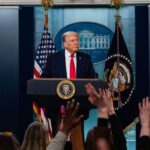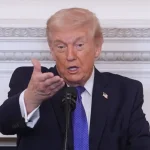
The concept of eastern opposition to globalist institutions is a fanciful one driven perhaps by people's hopes that some country somewhere is going to “make a stand” against the agenda. Unfortunately, the vast majority of nations are irrevocably tied to the machinations of global banks.
China is a perfect example of a country that is often falsely associated with “opposition” to globalism. Besides representing one of the most oppressive regimes in the world today complete with Orwellian social credit systems, concentration camps, organ harvesting programs and vaccines passports, the CCP is also a long time proponent of a global currency system controlled by the IMF as well as the latest member of the Special Drawing Rights (SDR) basket.
This membership comes with many stings attached, including requirements for China to issue large amounts of Renminbi-based liquidity, mostly through debt instruments. We can see this clearly in China's national debt numbers from 2013 onward. In 2013, when it became clear that China would indeed be seeking inclusion in the SDR, the nation's debt obligations exploded. This was primarily due to IMF demands, which China anxiously sought to meet. China met the IMF's debt requirements in 2015 and was officially added to the SDR in 2016.
The development clarified a couple of questions in the alternative economic media in terms of the ultimate fate of the US dollar and the future of global trade. First, the dollar's share of global trade was going to diminish, which is what is now happening. This causes a great number of problems for the US in terms of inflation, because until recently the US economy has been able to export inflation by circulating fiat currency overseas. As long as the world reserve status of the dollar holds and as long as the dollar's share of global trade continues to expand every year, then this model works. But, with reserve status in decline, all those dollars held by foreign banks could come flooding back to America.
Second, China showed it has every intention of helping global banks to end the dollar's reserve status, but no intention of decoupling from the bigger agenda of a one world currency system under global banks. The notions floating around that China was “anti-globalist” were proven false.
The latest news from the Bank for International Settlements further supports this reality.
The BIS has just announced a Renminbi based liquidity pool agreement with China's central bank. This liquidity pool would act as a stimulus backstop for countries primarily in the Asia-Pacific region, and will be denominated primarily in China's currency. The announcement might seem rather innocuous to the casual observer; but the fact that it is an RMB liquidity pool is what makes it interesting.
The BIS has long offered liquidity arrangements denominated in dollars, but creating similar options in Chinese currency is something new. Increased liquidity was a key component presented by the BIS last year in discussions on the internationalization of the RMB, and now it's already being implemented today.
The timing of this cannot be overlooked. There is currently an international economic conflict taking place between Russia and NATO countries, and China has proven to be a substantial ally for Russia. China's RMB credit systems and cross border currency exchange systems are proving ample enough to help Russia adapt to life without SWIFT. China is also greatly increasing its purchases of Russian oil and other goods. In other words, China along with other nations like India are making it possible for Russia to sustain itself without access to western markets.
The IMF and the World Trade Organization continue their relationship to Russia, and both the IMF and BIS treat China like their new darling. Whether or not you agree with Russian or Chinese policies and actions is irrelevant. The point is, they always retain their relationships with the globalists. Countries and economic unions may fight great wars, with finance or with bombs and bullets, but the globalists are always in the background playing both sides.
One has to question what the ultimate goal is once they understand that global banks play both sides while having no loyalty to either side. The BIS and IMF helping the expansion of China's currency in terms of global market share suggests that they WANT the erosion of the dollar, and maybe even a declining US. If the end game is a global basket currency that they control, then it makes perfect sense. The dollar served its purpose but now it's in the way, so the dollar has to go and China is more than happy to help.
The concept of eastern opposition to globalist institutions is a fanciful one driven perhaps by people’s hopes that some country somewhere is going to “make a stand” against the agenda. Unfortunately, the vast majority of nations are irrevocably tied to the machinations of global banks.
China is a perfect example of a country that is often falsely associated with “opposition” to globalism. Besides representing one of the most oppressive regimes in the world today complete with Orwellian social credit systems, concentration camps, organ harvesting programs and vaccines passports, the CCP is also a long time proponent of a global currency system controlled by the IMF as well as the latest member of the Special Drawing Rights (SDR) basket.
This membership comes with many stings attached, including requirements for China to issue large amounts of Renminbi-based liquidity, mostly through debt instruments. We can see this clearly in China’s national debt numbers from 2013 onward. In 2013, when it became clear that China would indeed be seeking inclusion in the SDR, the nation’s debt obligations exploded. This was primarily due to IMF demands, which China anxiously sought to meet. China met the IMF’s debt requirements in 2015 and was officially added to the SDR in 2016.
The development clarified a couple of questions in the alternative economic media in terms of the ultimate fate of the US dollar and the future of global trade. First, the dollar’s share of global trade was going to diminish, which is what is now happening. This causes a great number of problems for the US in terms of inflation, because until recently the US economy has been able to export inflation by circulating fiat currency overseas. As long as the world reserve status of the dollar holds and as long as the dollar’s share of global trade continues to expand every year, then this model works. But, with reserve status in decline, all those dollars held by foreign banks could come flooding back to America.
Second, China showed it has every intention of helping global banks to end the dollar’s reserve status, but no intention of decoupling from the bigger agenda of a one world currency system under global banks. The notions floating around that China was “anti-globalist” were proven false.
The latest news from the Bank for International Settlements further supports this reality.
The BIS has just announced a Renminbi based liquidity pool agreement with China’s central bank. This liquidity pool would act as a stimulus backstop for countries primarily in the Asia-Pacific region, and will be denominated primarily in China’s currency. The announcement might seem rather innocuous to the casual observer; but the fact that it is an RMB liquidity pool is what makes it interesting.
The BIS has long offered liquidity arrangements denominated in dollars, but creating similar options in Chinese currency is something new. Increased liquidity was a key component presented by the BIS last year in discussions on the internationalization of the RMB, and now it’s already being implemented today.
The timing of this cannot be overlooked. There is currently an international economic conflict taking place between Russia and NATO countries, and China has proven to be a substantial ally for Russia. China’s RMB credit systems and cross border currency exchange systems are proving ample enough to help Russia adapt to life without SWIFT. China is also greatly increasing its purchases of Russian oil and other goods. In other words, China along with other nations like India are making it possible for Russia to sustain itself without access to western markets.
The IMF and the World Trade Organization continue their relationship to Russia, and both the IMF and BIS treat China like their new darling. Whether or not you agree with Russian or Chinese policies and actions is irrelevant. The point is, they always retain their relationships with the globalists. Countries and economic unions may fight great wars, with finance or with bombs and bullets, but the globalists are always in the background playing both sides.
One has to question what the ultimate goal is once they understand that global banks play both sides while having no loyalty to either side. The BIS and IMF helping the expansion of China’s currency in terms of global market share suggests that they WANT the erosion of the dollar, and maybe even a declining US. If the end game is a global basket currency that they control, then it makes perfect sense. The dollar served its purpose but now it’s in the way, so the dollar has to go and China is more than happy to help.







